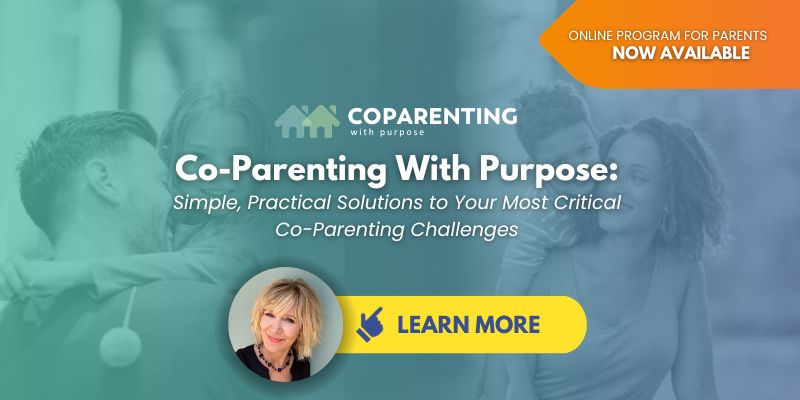The Conflict Connection: Figuring Out What Makes Your Difficult Co-parent Tick

Joe was at his wits end. Ever since his divorce he tried to do everything he could think of to get along with his co-parent, Maria. It seemed like no matter how hard he tried nothing worked.
While they would go through periods where things were fine, it usually didn’t last for long. Eventually Maria would unexpectedly explode over something trivial and a slew of angry email, texts and voicemails would ensue.
When this happened, Joe would usually drop what he was doing and immediately respond to Maria’s outburst. Most of the time Joe did his best to calm Maria down and work things out. If she sent him an accusatory email, he would reply with an equally long email explaining his perspective point by point. Every voicemail and text she left, he would return, resulting in numerous back and forth exchanges and heated debates.
Joe knew none of it was good for his 10-year-old son, Sammy. While he wasn’t willing to be Maria’s doormat, he desperately wanted to do right by his son.
What Joe didn’t get (and most parents don’t) is that he was giving Maria lots of incentive to stir the pot.
REMOVE THE PAYOFF
When dealing with a contentious co-parent it’s easy to get overwhelmed by the drama and miss what’s really driving the train. Let’s take another look at our buddy Joe. Every time he and Maria got into a spat, Joe unknowingly was giving Maria exactly what she wanted, his undivided attention. This dynamic is sometimes referred to as negative intimacy. In other words, since Maria no longer passionately loved Joe, she put her energy into passionately agitating Joe. For Maria, the conflict had become the primary outlet for keeping her connection to Joe alive.
Keep in mind that there can be lots of different payoffs for a conflictual co-parent. For some, it may be the need to feel in control or powerful. Others may try to offset feelings of helplessness while another may use the ongoing conflict to assert a false sense of superiority or importance.
Without a doubt, dealing with the unrelenting antics of a contentious co-parent can be exhausting. If you’re tired of feeling emotionally drained, frustrated and hopeless, here are a couple of tips for minimizing the BIG payoff and curbing divorce drama.
• Respond don’t react
Just because you share parenting responsibilities doesn’t mean you have to be at your co-parent’s beck and call 24/7. Aside from emergencies, very few situations require your immediate response. When a demanding email from your co-parent pops into your inbox, resist the impulse to rifle one back. Instead give yourself some time to consider what the issue is and if it truly requires a response. Remember you don’t need to swing at every pitch your co-parent tosses your way.
• Stay Consistent
If your co-parent has a track record of playing nice one day and nasty the next, do your best to make your interactions consistent. Regardless of how your co-parent behaves establish healthy boundaries for day-to-day interactions.
• Be Realistic
While it’s fine to hope that some day things will change, be realistic about your situation. Come to terms with the fact that you cannot change what your co-parent does, the choices they make or how they behave. Instead of turning yourself inside out, stay focused on what matters most — how you handle the conflict, the way you process the issues with your kids and limiting the energy that you give to divorce drama.
• It won’t get better overnight
When you repeatedly refuse to take the bait, expect your co-parent to up the ante. Do your best not to impulsively respond to situations that come up. Over time as you continue to hold your ground chances are your co-parent’s conflictual behavior will become less frequent and intense.
• Keep your eye on the prize
Dealing with a contentious co-parent is without a doubt mentally and emotionally draining. Make sure you have other supports in your life to help you go the distance when your co-parent is being especially difficult. Often working with a good life coach or counselor can help your gain clarity and emotionally disconnect from the conflict.
Although you may not see the results of your efforts immediately, in the long run staying committed will pay big dividends for your kids.
Have you been dealing with a difficult co-parent? If you’ve got tips for removing the big payoff or curbing divorce drama, please share your wisdom in the comments section below.
Until next time,
Christina







Good tips – I’m in the middle of a Divorce with a high conflict spouse. I had to learn the hard way and responded a got caught up time and again. Now, I do follow the tips and have one of my own.
Some of us can’t resist the urge to immediately write a response, it just feels so good to get it out. So, I write my true passioned response and send, along with a copy of the email from my soon to be ex, to my girlfriend. Then we have a chat and mostly a laugh about it.
Hi Donna, Glad to hear you liked the article and you’re absolutely right, just getting it out can help tremendously. So great that you have good friend who will listen/laugh with you instead of stir the pot.
I encourage parents to use the “sleep on it” strategy when they don’t have someone to help them sort it out. Often hitting pause puts a new spin on things. What seemed “response worthy” in the heat of the moment usually doesn’t seem as important the next day. For those occasions when a response is needed I suggest parents put a red pen to their response. When editing your note to the other parent, mark through everything that doesn’t have anything to do with the children. Not only does it help you get to the heart of the matter, it also keeps you from using valuable energy addressing issues that are not going to be resolved. Thanks for checking in!
You are so right—and it takes superhuman strength not to feed the dragon. Unfortunately it usually takes a few years to really see that, and to believe that things will ever change.
I personally made it a point to be mindful of the fact that the other parent will always be around—if you do it right. No amount of wishing will make them go away, so you may as well do your best to give your children all the joint time and memories you can before they grow up and move out. We celebrate holidays together and cooperate as best we can, because we know it is far more damaging to restrict the kids to only mommy memories and daddy memories. We can’t give them a family in one house but we are going to be family no matter where we all live.
—Melinda Roberts, author of “42 Rules for Divorcing with Children: Doing It with Dignity & Grace while Raising Happy, Healthy, Well-Adjusted Children.” Foreword by Heather Armstrong of Dooce.com.
Hi Melinda, Thanks for stopping by and sharing. Would love to know more about your book.